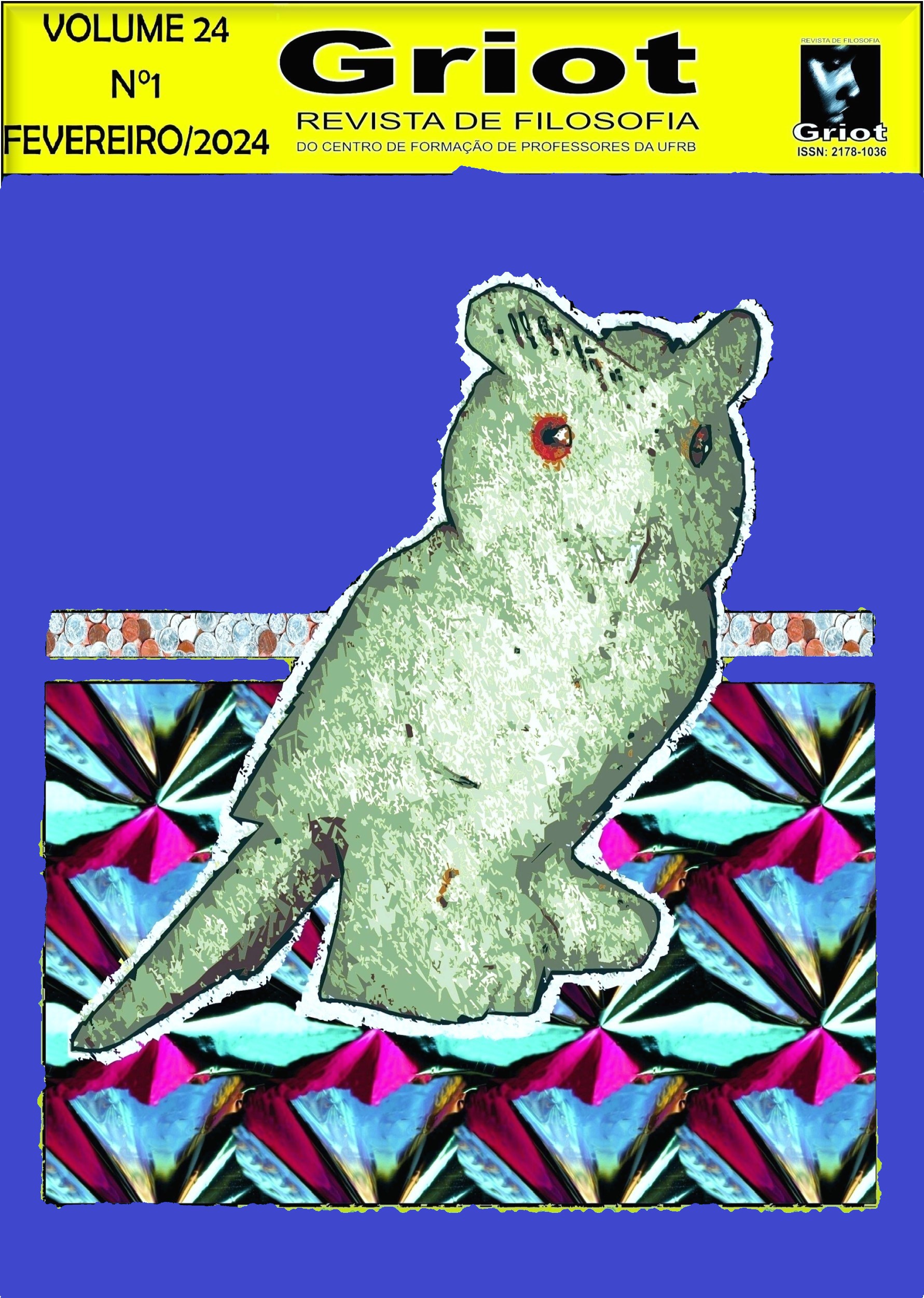The human, the language, the world and the book in Heidegger and Calvin: a brief understand
DOI:
https://doi.org/10.31977/grirfi.v24i1.3568Keywords:
Book; World; Language; Martin Heidegger; Ítalo Calvino.Abstract
Dasein is an entity that can be understood as being-in-the-world, in which the "world" refers to the referential context of meanings. In this context are the environments where the human being as historically constituted relates to other entities, among them the entity called "book" which can mean more than a mere instrument in its instrumentality (Zuhandenheit), but be this entity "the book of my childhood", "of adolescence", etc., unveiling his deliverance in the "for what it is read". The book speaks because the one who wrote it, the Dasein-author, is possessed of language just as the Dasein-reader who relates to the work. Calvin states that the book, as an author’s self-portrait, presents a written world, whose source is the unwritten world, that is, the reality that is more surprising and frightening than what is in the book. The relationship of literature with the philosophy that once belonged to opponents has changed with the writers' attempt to reconcile both movements, including one more element in a triple relationship - Science - Philosophy - Literature. Like the human being, the book has undergone significant changes, such as the rise of digital books. The purpose of the article is to understand these aspects and philosophically interpret some excerpts from world-known works.
Downloads
References
BOLONGARO, Eugenio. Italo Calvino and Compass of Literature. Canada: University of Toronto Press, 2003, pp. 191-196.
CALVINO, Ítalo. Coleção de Areia. Tradução: Maurício Santana Dias. São Paulo: Companhia das Letras, 2010, pp. 71-76.
CALVINO, Ítalo. Mundo escrito e mundo não escrito – Artigos, conferências e entrevistas. Tradução: Maurício Santana Dias. São Paulo: Companhia das Letras, 2015, pp. 98-121.
CALVINO, Ítalo. Por que ler os clássicos? Tradução: Nilson Moulin. São Paulo: Companhia das Letras, 1991, pp. 9-16.
CALVINO, Ítalo. The uses of Literature. Traduction: Patrick Creagh. San Diego/New York/London: Harcout Brace & Company, 1987, pp. 32-38.
DAVI. Salmo 23. In: João Ferreira de Almeida. Bíblia Sagrada. São Paulo: SBB, 2008.
FRANK, Anne. O diário de Anne Frank – Sábado, 20 de junho de 1942 . Tradução: Suely Paiva. São Paulo: Editora Geek, 1998.
GOETHE, J.W. Fausto I. Tradução: Jenny Klabin Segall. São Paulo: Editora 34, 2020, pp. 58-60. Estrofes 355-385.
HEIDEGGER, Martin. G.A. 02. Ser e Tempo. Bilíngue Alemão-Português. Tradução: Fausto Castilho. Petrópolis/Campinas: Vozes/Unicamp. 2012. [ST].
HEIDEGGER, Martin. G.A. 12. A caminho da linguagem. Tradução: Marcia Sá Cavalcante Schuback. Petrópolis/Bragança Paulista: Vozes/São Francisco, 2003.
HEIDEGGER, Martin. G.A. 36/37. Ser e Verdade. A questão fundamental da filosofia. Da essência da verdade. Tradução: Emmanuel Carneiro Leão. Petrópolis/Bragança Paulista: Vozes/São Francisco, 2007.
HEIDEGGER, Martin. G.A. 63. Ontologia: Hermenêutica da Facticidade. Tradução: Renato Kirchner. Petrópolis: Vozes, 2012. [G.A. 63]
HEIDEGGER, Martin. G.A. 85. Sobre a Essência da Linguagem. A respeito do tratado de Herder “Sobre a origem da linguagem”. Petrópolis: Vozes, 2015.
HOMERO. Odisséia. Tradução: Antônio Pinto de Carvalho. São Paulo: Nova Cultural, 2002.
MARKEY, Constance. Italo Calvino – A journey toward postmodernism. University Press, 1999, pp. 24-37.
MODENA, Letizia. Italo Calvino’s Architecture of Lightness – The Utopian Imagination in an Age of Urban Crisis. London/New York: Routledge, 2011, p.1.
SAINT-EXUPÉRY, Antoine de. O Pequeno Príncipe. Editora Agir [2020].
STOKER, Bram. Drácula – Diário de Bordo do Deméter de Varna para Whitby. Tradução: Vera M. Renoldi. São Paulo: Editora Suzano, 2002, pp. 88-93
TOLKIEN, J.R.R. O Hobbit. Tradução: Lenita Maria Rímoli Esteves. São Paulo: Martins Fontes, 2009, pp. 4-6.
Downloads
Published
How to Cite
Issue
Section
License
Copyright (c) 2024 Eric Ewans Mendes

This work is licensed under a Creative Commons Attribution 4.0 International License.
The authors who publish in Griot: Revista de Filosofia maintain the copyright and grant the magazine the right of first publication, with the work simultaneously licensed under the Creative Commons Attribution 4.0 International License, allowing sharing and adaptation, even for commercial purposes, with due recognition of authorship and initial publication in this journal. Read more...









































































